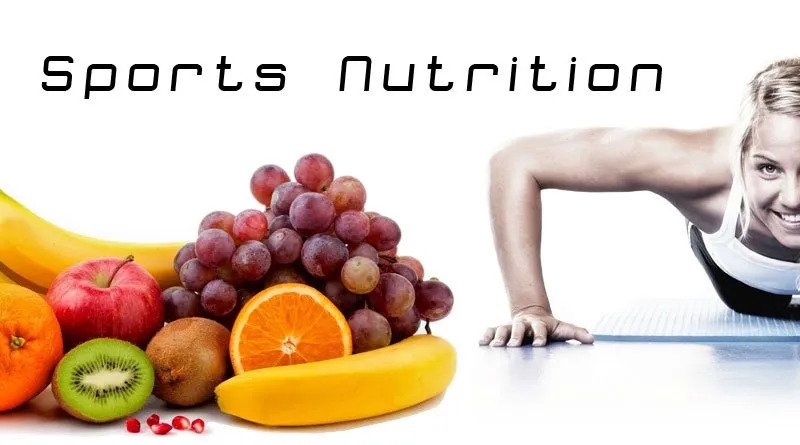Sports have been one of the most sought-after activities humans designed, involving your body and mind. To carry out any activity, nutrition is important. But sportsperson needs are highly specialized as they undergo rigorous physical training, due to which the importance of sports nutrition is immense.
Sports participation requires optimal nutrition, with a specific focus on dietary modifications. Targeted fitness development at an early age, especially at a young age, is seen as the foundation for leading an active lifestyle, avoiding potential overweight, reducing motor deficiencies, and thus improving the general quality of life are some of the important factors that show the importance of sports and nutrition in one’s life.
Why is sports nutrition important?
A sportsperson has a very disciplined life to achieve great results; for that, his physical and mental wellness is very important, and food plays an immensely important role. So, the importance of sports nutrition, as stated by the best nutritionists in Delhi and other cities, is as follows:
- During the performance, an athlete should be well-nourished, uninjured, fit, focused, and ready to compete. Sports nutrition is not just about calories to achieve weight or body composition goals; it is also about protein for muscles or carbohydrates for fuel. Nutritional and eating habits have been of specific interest in sports, especially given their impression on athletic performance.
- General recommendations need to be suggested by sports nutrition experts to accommodate the specific requirements of individual athletes regarding health, sports, nutrients, food choices, and body weight and composition.
- Athletes challenge their bodies through tough physical training and competitions. So to keep up with the demand for stamina in their activity or sport, athletes need adequate fuel for their bodies on a day-to-day basis.
- Nutrition is important for an athlete because it provides the energy required to perform the activity. The food they take impacts strength, training, performance, and recovery.
- Not only the type of food is important for sports nutrition, but also the time is equally important for what they eat throughout the day. It also impacts their performance and the body’s ability to recover after a workout.
- An athlete must pay close attention to when, what, and how much he eats or drinks before a game or match.
- Proper nutrition must be available before, during, and post-competition. From fueling to recovery, muscle-building weight, and making optimal nutrition ensure the best platform for success in any sport.
- Meals eaten after and before the exercise are the most important in nutrition, but we should be very careful with all that the athlete intake in his body. As a general rule of thumb, an athlete should eat about two hours before any exercise, and the meal should be high in carbohydrates, low in fat, and low to moderate in protein. Carbohydrates are the main source of energy that provides power to an athlete in an exercise regime. Protein is for muscle growth.
The main aim of Sports Nutrition
The main aim of sports nutrition is to achieve the following:
- Performance
- Health
- Stamina
- Sound Recovery
These can be achieved by following “The Three Principles of sports nutrition,” which are
- Fuelling: Fuelling is the use of nutrients to enhance the stamina and performance of athletes. The goal is to use the correct nutrients and micronutrients proportionately to increase strength and vitality for optimum performance.
- Hydration: Hydration is maintaining muscle health by regulating fluids and electrolytes. The goal is to prevent dehydration and injury. The amount of fluid intake depends on age and body size mainly. Fluids, particularly water, are important for athletes. Athletic performance can be affected by what, how much, and when an athlete drinks. Fluids help to regulate body temperature and replace sweat loss during exercise.
- Recovery: Recovery uses nutrients to help body tissue recover from performance fatigue and injury. The goal is to promote healing. Recovery foods should be consumed within 30 min of exercise and again within one h to 2 h of exercise to help reload muscles with glycogen and allow for proper recovery. These foods should include protein and carbohydrates mainly.
Benefits of sports nutrition
Most athletes and sportspersons understand that nutrition is key to better performance. The primary nutrients, carbohydrates, proteins, and fats, form the very fundamental source of energy and help in athletic activity. To understand the importance of sports nutrition, we need to look closely at the various aspects that are studied and practiced by experts –
- Understanding the nutritional needs of sportspersons and athletes
- Finding the perfect balance or proportion of nutrients that supply energy and stamina
- Advising athletes about the proper timings for the intake of nutrients to optimize performance and health
- Fine-tuning the frequency of food intake to benefit the athlete
- Understanding the specific nature of each sport and advising the athlete with customized plans
- Understanding the role played by micronutrients in building muscle mass, enhancing performance, maintaining health, and recovering from injury.
- Finding the right nutritional supplements to optimize sports performance
- Injury prevention
- Strengthening of the immune system
- Decreased muscle tiredness and soreness.
- Muscle healing and recovery.
- Improved energy levels.
- Increased focus and attention span.
Athletes increasingly feel the importance of sports nutrition and sports medicine. Relying on traditional, unscientific nutritive practices and fads can cause great harm to the health and performance of athletes.
Also Read: Why no fasting to reduce weight?
How Can A Sports Nutritionist Help?
Everyone sportsperson has different fitness levels, diets, goals, and activities, and one size doesn’t fit all. A sports nutritionist will work with you to discuss your goals and current status and devise a tailored nutrition plan to maximize your performance.
Whether your goal is training for a specific event or general enhancements such as weight management, improving concentration, or energy levels, a sports nutrition professional will assess your whole-body health, daily habits, supplements, and regular medication needs.


































